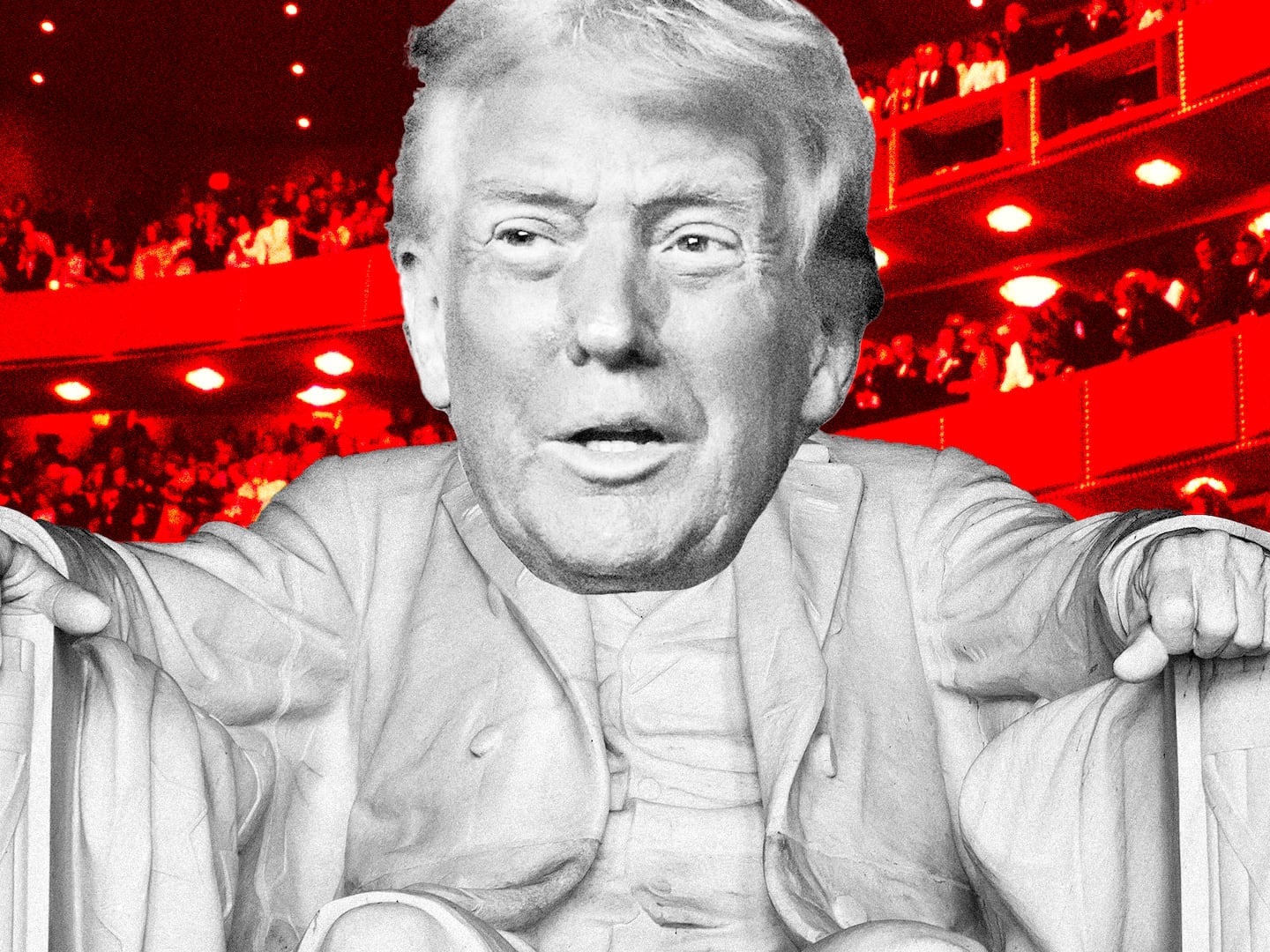QAnon followers are scrambling for a new digital home after Facebook issued a blanket ban on the movement’s pages on Tuesday, in what looks likely to be the most significant social media crackdown in the history of the pro-Trump conspiracy movement.
Faced with a wide-ranging purge, QAnon followers dreaming of the day Donald Trump orders the mass arrests of his opponents are faced with a choice: flee to another, more Trumpian, social network, or try to go underground on Facebook by disassociating their QAnon groups from the increasingly toxic QAnon brand.
Facebook was uniquely valuable to QAnon believers, according to Travis View, a QAnon researcher and co-host of the QAnon Anonymous podcast, because it offered a huge well of potential followers, as well as a “group” function for QAnon believers to radicalize one another.
For years on Facebook, QAnon followers were more or less free to talk about their bizarre beliefs, ranging from the theory that Donald Trump is engaged in a shadowy war against a cabal of Satanic pedophile-cannibals in the media and the Democratic Party to the conviction that Trump will soon order the mass arrests and executions of his foes.
“There were millions of aggregate followers across hundreds of Facebook QAnon groups,” View told The Daily Beast. “It was a huge place, a huge recruiting ground, even, for less tech-savvy QAnon followers.”
That changed Tuesday, when Facebook grouped QAnon into a policy that amounts to a blanket ban on postings from violent social groups. A number of QAnon pages had managed to survive an earlier, lighter crackdown in August that eliminated nearly 800 groups on Facebook and Instagram. But the Tuesday purge went much further, knocking out nearly all of the major QAnon Facebook groups. The new ban extended to non-English QAnon pages, too, including a Quebec QAnon page with more than 77,000 members that spread QAnon in both Canada and France.
In the face of the purge, “Q,” the anonymous poster behind QAnon, cheered on followers claiming it was “INFORMATION WARFARE” aimed at them because QAnon is on the verge of a breakthrough. But with no real recourse, some QAnon believers began looking for pastures beyond Facebook.
YouTube and Twitter remain comparatively more open to QAnon content, although both platforms have taken steps to limit QAnon’s reach. Instead, some QAnon followers are preparing to head to Parler or Gab, the two second-tier social networks that have pitched themselves as alternatives for conservatives and Trump supporters already banned from bigger platforms.
Parler already has a thriving QAnon community, with nearly 500,000 uses of just two prominent QAnon-related hashtags. It also received a big boost earlier this year as conservative leaders—accusing Twitter of censoring Trump and other conservatives—made a big show about ditching Twitter for Parler, though most of them continued posting on Twitter anyway.
But the site is harder to use than mainstream social networks, a constant topic of complaint for conservative personalities banished there. And it lacks Facebook’s massive user base of unsuspecting mainstream users primed to be “red-pilled” — the QAnon term for converting a new QAnon believer.
Gab faces many of Parler’s problems, plus some of its own. Once the right’s leading social media platform, Gab’s reputation has been marred by its popularity with white supremacists attracted by the site’s hands-off approach towards moderation. In 2018, the suspect in the Pittsburgh synagogue shooting allegedly announced the shooting ahead of time on Gab.
Gab has aggressively courted QAnon followers banished from Facebook in the wake of Tuesday’s crackdown. The site has a “groups” function that could replicate Facebook’s own QAnon groups, albeit on a much smaller scale. And in an email to Gab users Tuesday, Gab founder Andrew Torba positioned the site as a haven for QAnon believers exiled from Facebook, writing “Gab Welcomes QAnon Across Its Platforms.”
“From what we have observed these are very fine people who love freedom and their country,” Torba wrote. “They seek out the truth for themselves rather than depending on the mainstream media or Big Tech companies to do it for them.”
For QAnon believers trying to survive on Facebook, there could be a way to slip past the ban. Even before Facebook’s crackdown, top QAnon promoters had urged their fans to not openly use the phrase “QAnon,” both to avoid social media bans and to avoid alienating potential converts.
It appeared to work. QAnon-boosted conspiracy theories about the coronavirus and the “Save The Children” hashtag went viral without explicit QAnon connections, providing QAnon supporters with a template for getting their message out without the toxic “QAnon” branding.
But Facebook may already be prepared for QAnon to change names or tactics. The statement announcing the ban noted that the platform will work with experts to track any changes to QAnon messaging.
If Facebook keeps up the pressure on QAnon, according to View, it will mark an epochal moment in the conspiracy theory’s growth.
“I think this is an inflection point for the history of the QAnon community,” View said. “Either they fade, or they’re going to become more radical as they’re relegated to more extreme platforms.”







